|
The Final Tally
|
Well, my contest career is officially over. All my scoresheets and rankings and whatnot have at long last returned, almost eight months after I sent my first entry off. In total I entered five contests. In two I did not final, in three I did. I placed everywhere from (the bottom of) the bottom third to first place.
So, what lessons did I glean from this short foray into the craziness of romance contests?
I would say I learned something about hooks. The two contests I won were the two I entered with my first 50 pages. The two contests in which I did not final were ones that asked for 25-30 pages. (the fifth contest, for those doing math, was for sexy scenes) In my manuscript, 50 pages ended with the heroine nearly drowning, then calling the hero a cold, heartless man who hadn’t the courage to love. By contrast, 25-30 pages got me somewhere into the middle of breakfast.
Lesson 1: Breakfast is not a good hook. Not even a breakfast with chocolate.
Some judges adored my heroine. Others called her TSTL. Some judges thought my hero was “perfect”. Others said he was boring and blank. Some judges thought my sense of period was smooth and believable; others found errors in every garment, furnishing, and plant I described. And in every contest, one judge – the same judge? – would complain that I did not include enough smells.
Lesson 2: I’m never, ever going to please everyone. And that’s okay.
In the end, I guess I was a “successful” contestant, because I did end up getting the real prize we’re all after – a few editor requests for the full manuscript. However, by the time I received those requests, the book was sold. Between entering my first contest in March and getting the last rankings in November, I’d gotten a dozen crits, collected some rejections, done a huge rewrite of my book, then received a few agent offers, then there was the whole submissions-auction-deal shebang. Which brings me to the final lesson I’m taking away from the experience, and the big reason I’m writing this post.
Lesson 3: Contests are not a substitute for querying.
Perhaps I could have sold my book on contests alone – who knows? I might have sent my full to the editors who requested it, and one of them might have offered me a contract. But I wouldn’t be in the same position I am now, that’s for sure. My trilogy deal would never have happened if I hadn’t found the right agent, and found her through extensive querying and networking.
So this is my Go-Team rallying cry to all of you who just sent off Golden Heart entries and heaved big sighs of relief. Congratulations! It’s a great accomplishment, and you worked hard for it. But don’t let yourselves be tempted to sit back, to just “wait and see what happens” on notification day, four months from now. Keep working. Keep revising. Keep querying. I want to see you wearing Golden Heart pins AND pink First-Sale ribbons in San Fran! Go, go, go!!
*waves pompoms*
Okay, now I’m exhausted.
What lessons have you learned from contests?
Edit: I don’t want to give the impression that I didn’t get any useful feedback from contests. I most certainly did. In fact, I just recently got back my Vixen entries, and two of the judges singled out the same sentence for shaky POV – they are absolutely right, and I’m going to fix that in edits. Different judges in different contests quibbled with my use of a “winterberry” bush – and even though I had done research to show that they existed in England at that time, I decided it wasn’t worth the hassle or pulling readers out of the story and just changed it to “ivy”. And some of the early judges who called my hero “blank” were kind of right – because I didn’t really know who he was when I wrote that first draft. But I also learned that trying to follow every suggestion from a contest judge would be a short road to insanity – different readers will always have different reactions to my book.


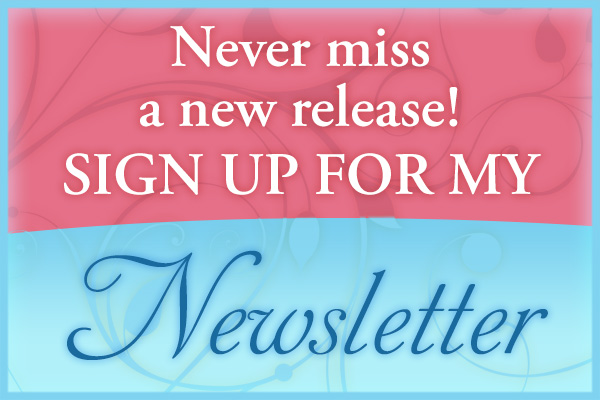
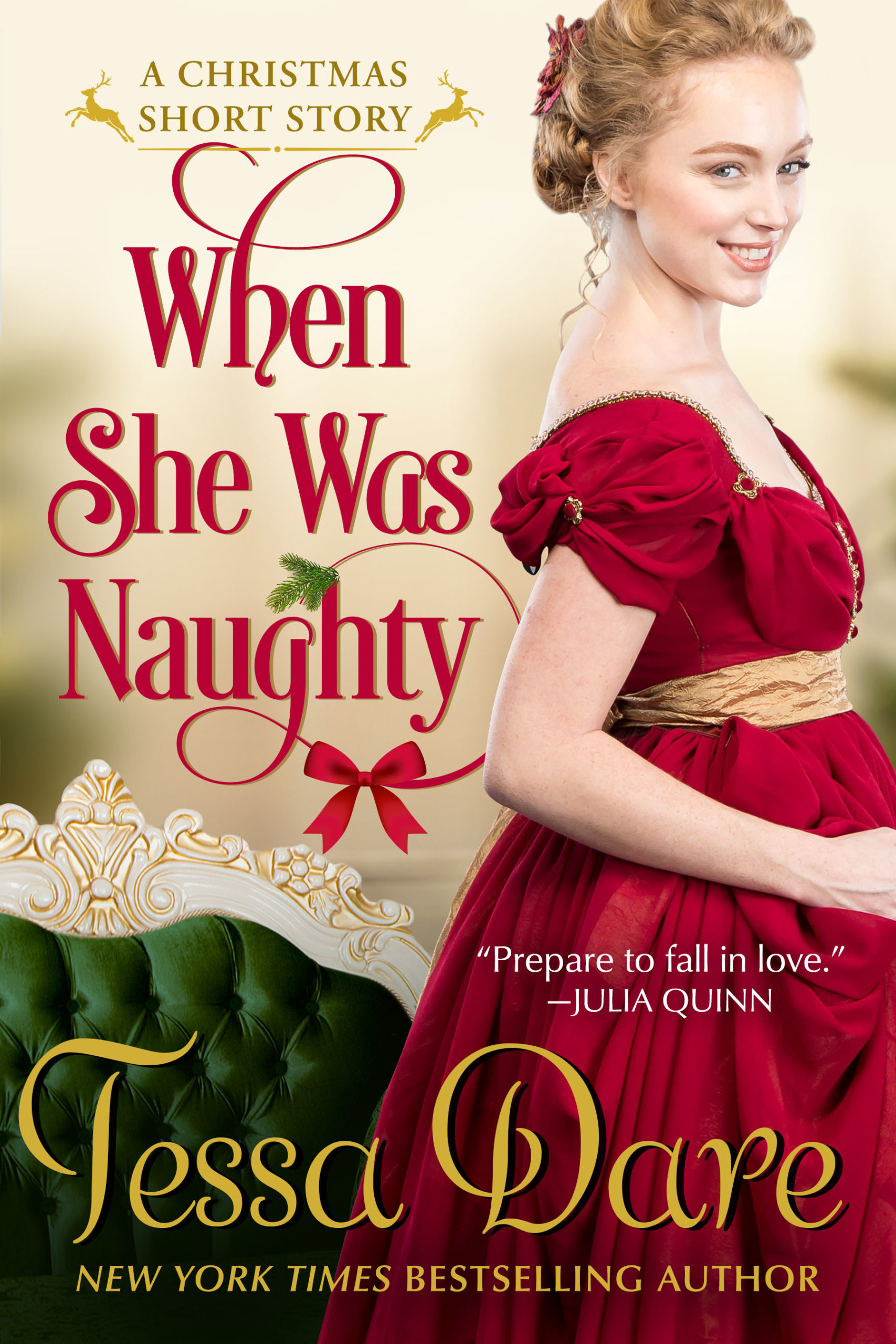
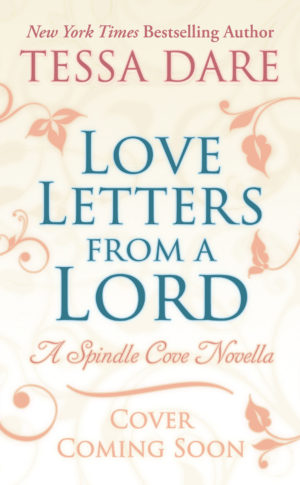
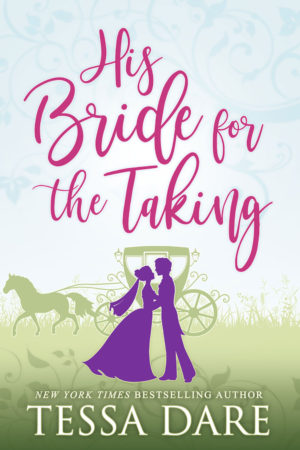
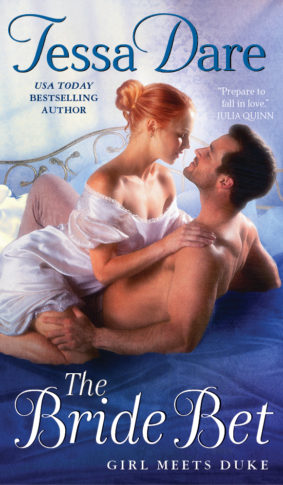
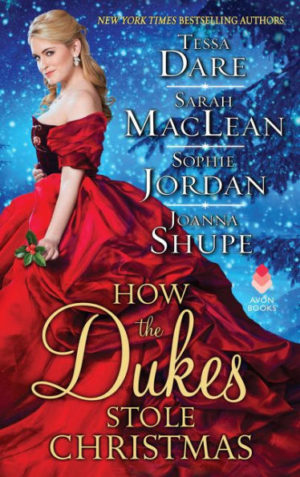

December 7th, 2007 at 7:28 am · Link
Hey, I’m first today! 😉
Great post. What I’ve learned from contests so far is just what you’ve said: It’s really hard to garner a consensus on any one aspect of your story.
I’ve also become SO much better at looking at my manuscript as a product, a part of the business of publishing and not some extension of myself that can’t tolerate criticism or rejection.
I’ve also learned the story benefits much more from those criticisms than praise, no matter how nice it is to read. 🙂
December 7th, 2007 at 8:02 am · Link
Only entered one and did it for feedback alone which is exactly what I got. They said I had a long way to go but where I am is not bad so keep going. Mission accomplished.
Thanks for sharing all this priceless knowledge with those of us farther behind in the game. What I’ve learned is that you are gracious and generous as well as a fabulously talented writer.
Out of curiosity, does anyone enter these contests for the money or whatever the prize may be other than getting in front of agents/editors? I saw one the other day where the entry fee was $30 and the first place prize was $30. Wha…?
December 7th, 2007 at 9:22 am · Link
I just has some insight by reading your blog. I had instinctively angled for hooks, but now see them as even more important.
December 7th, 2007 at 10:11 am · Link
Gillian – that’s an excellent point. Skin-thickening is one of the best things about contests. I’m glad my first contest results were my worst, because they were devastating, but once I got over it, I was that much stronger. And you’re also right that when judges do give you a consensus, it’s very helpful. I realized I was kind of making it sound like my feedback was useless, but that wasn’t the case. Just that I learned it’s not possible to please everyone all the time.
Terri – I don’t know that anyone enters these things for the cash. I think the real “prize” most are after is the editor request and a line for your query letter (“This was a finalist in the Chartreuse Shamrock contest”, etc.) For my two wins, I netted a total of $125, but I’m sure I spent twice that in entry fees, printing, and postage.
AA – I think hooks are important, esp. for contests – because the judges are required to read to the end. For agent/editor partials, my gut tells me maybe not as much – because they’ve probably decided long before page fifty whether they want to see more.
Anyone else have thoughts on that?
December 7th, 2007 at 11:32 am · Link
I’ve only entered one contest. I learned I wasn’t ready for the contest arena. Maybe in the new year.
December 7th, 2007 at 5:11 pm · Link
Great blog, Tessa! With this blog, you have confirmed what the dh keeps saying to me. Contests are good for feedback and in some cases “skin-thickening,” but in the end, agents and editors make the real difference. I’ll still enter a select few to get some feedback, but my goal for the new year is to finish something I’ll be excited for an agent or editor to see. :0)
December 7th, 2007 at 5:39 pm · Link
I’m not doing the contest scene anymore, Tessa, because I came to a similar conclusion: I should spend that time and money submitting projects to editors and agents. That said, I did learn a few things from contests and had generally favorable results. I started submitting an epic fantasy manuscript to RWA contests in late 2005 and continued until just before FanLit. I got one first place, a second, a third, an honorable mention, and one big goose egg out of the five contests I entered between late 2005 and just before FanLit last year.
But no editor/agent requests at all — from contests. In one situation, the editor had moved on to a different genre, and in the others, the manuscript just didn’t grab ’em, for whatever reason, or it wasn’t a fit for their line. I was entering an epic fantasy with romantic elements in the catch-all “paranormal” category, though, so I wasn’t too surprised that it didn’t get requests.
Finally, I had to get it through my head that I needed to be submitting my manuscripts to editors and agents who deal in my particular sub-genre instead of spending time on contests. For the most part, final round judges in RWA chapter contests are more interested in paranormal romance than in epic fantasy. No surprises there!
It was time to move on, and I’m glad I did. 🙂
December 8th, 2007 at 6:56 am · Link
Yes, I totally agree with you, contests are not and should not be a substitute for querying and networking and getting your stuff out to agents and editors. You can’t please everyone and you shouldn’t try. I just read recently where an agent (or was it an editor) who said she reads many partials and fulls where she knows the story has been tempered down to try to please the judges (or critiquers) and reads very middle of the road bland. I think for many your story has to read a certain way in order to do well in contests. It must have very definitive external, internal goals for each character. I find most judges like to see more plot. They seem to love it if someone is in danger. What I found is if I wrote to win a contest I wouldn’t be writing the kind of book I want to read. (Although, I haven’t done horrible in contests. There are many judges who did love my story and were very enthusiastic about it but there were many who thought it needed more action…more plot). The only reason I’ll enter a contest now is if it’s an editor I can’t query, or the final editor is from a publishing house in which it’s hard to get my foot in the door. Other than that, agents and more agent querying.
December 8th, 2007 at 4:27 pm · Link
I’ve entered the GH just for the heck of it with one thing and two other contests with 2 other things. One entry was to “test the waters” with the first 10 pages and synopsis of a book I’d literally abandoned. I knew where I went off the rails, but I still loved my characters. I wondered if it would be worth it to go back and revise. Well, it finaled, so I guess it’s time to haul it out and polish, because believe me, the revised first 10 pages are nothing like the rest of it, LOL. The other contest was for feedback only on my current wip, and it was basically positive. I don’t think I’m going to continue to submit to contests, though. What I really need to do is write the last 10,000 words on Paradise, and then rip it all apart again!
December 9th, 2007 at 1:01 am · Link
Hi Tessa! I found my way here to your website after placing third in a contest you won 🙂 A huge congratulations on your three book deal with Ballantine! Best of luck!!
I really enjoyed your post on contests so thought I’d throw in my two bobs worth as well. I’ve hit the contest circuit in the past twelve months and learned a great deal from the experience. I’ve received some very useful feedback, to the point of prompting a huge, full manuscript revision and thus a much improved product. And of course, with all the (w)rite-of-passage knock backs we face, the encouragement is invaluable.
I feel that I have benefited enough from contests to avoid ‘big pitfalls’, especially at the outset of future work, but then ultimately trust myself – because to do otherwise is to try to please everyone, and leads to Beverley’s editor/agent with writing that is middle-of-the-road bland, and who does that please? I’ve thought to myself that there are only ‘so many’ suggestions you can take without losing the special ‘you’ about a piece. And if only two out of three people like those bits, there’s nothing wrong with that! You have to decide – or maybe you just know – what those special pieces are and then stick with them. And while some judges just ‘get’ your story (and wow those moments are special!), there are some who won’t even if bashed them repeatedly over the head with it. And I don’t mean because it’s good or bad writing or whatever… just that the voice / style is not their bag. That’s fine – I don’t love everyone’s work, and there are many different tastes out there!
In a recent contest, one judge (thankfully only one!) gave me my worst ever score (2/10 for X-Factor/Potential) and commented: “This isn’t ready for an editor yet”. Er… thank you? I didn’t final in that contest, but I did get my work in front of the same final judge editor via a different contest, and she requested the full. I put this in the some people get it / some don’t category, and I think this is something everyone who enters contests will face. So I guess the upshot of all this – for me – is the same as Maura. I have no regrets about the number of contests I’ve entered my first manuscript in. But looking forward I’ll be contest-selective in the hope of getting work before editors who don’t take unagented submissions, enter the GH of course, and otherwise focus on producing great work my way, having benefited from some wonderful feedback and very generous encouragement, and then get querying!
December 9th, 2007 at 10:18 am · Link
Renee – I did soooo poorly in my first contest, I could have concluded the same thing! But I’d already entered a few more, and those results were more encouraging. Don’t let any one contest discourage you!
Maura – I agree, selective contesting is the way to go. If the final judge doesn’t acquire/represent the kind of book you write, or one who’s already rejected you – it’s a lot of time and money to spend for little payoff.
Lynne – Sounds like you made the right call for your manuscript. But it must be good stuff, to have had that much success!
Bev – I completely hear what you’re saying about over-revision leading to “blandness”. Especially in contests where there’s a detailed scoresheet, I think contests are sometimes set up to reward writers who make few “mistakes” rather than writers who break the rules with style.
Joanne – Thanks for dropping by! And congratulations on your own contest success! I really appreciate and agree with your thoughts about that X factor – some readers are going to get it and some aren’t. That’s just the nature of the game. I’m glad we have a variety of subgenres and styles to meet a variety of reader tastes, but it’s never fun to get a contest score back from a judge who fell squarely in the “didn’t get it” column. 🙁 Congrats again, and good luck with your full request!
December 10th, 2007 at 1:21 am · Link
Even your blog on contest feedback rocks. Sigh 🙂